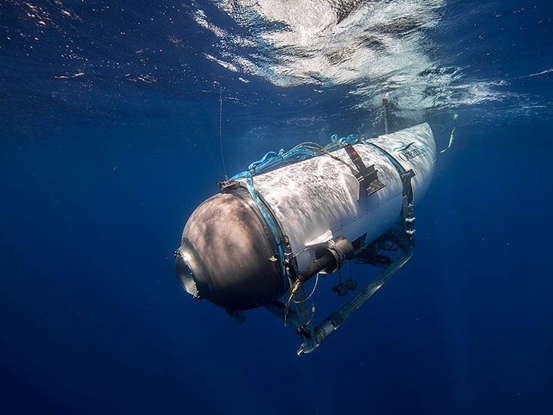
The cost of making deadly mistakes is sometimes necessary. Part 2
In part 1 of this blog, I wrote about Stockton Rush, the CEO of OceanGate and the implosion of the Titan. This week we’ll look at how mistakes are sometimes a necessary part of the discovery process.
Think of how many times a baby must stumble and fall in order to learn how to walk. The baby doesn’t think: “I’m terrible at this. I’ll never learn how to walk. The whole world walks, why can’t I?”
No, it keeps on making mistakes – experimenting with different ways of standing and taking strides – until it figures out how to walk.
Thomas Edison tried ten thousand different filaments or fibers in his light bulb and none of them worked. When a reporter asked him what it felt like to fail 10,000 times, Edison famously replied: “I haven’t failed 10,000 times; I have successfully found 10,000 ways that didn’t work.” When he finally tried the element tungsten, his persistence paid off.
Failing and making mistakes feels stressful. This disagreeable aspect of failure often leads to the fear of failure and prevents many of us from moving ahead or even trying something just little risky. Yet successful people like Edison always take this stressful aspect of experimentation into account. I sometimes think that is the difference between hugely successful people and those who aren’t. These people either go easy on themselves when they make a mistake, or they simply pick themselves up and get back into the ring and continue fighting. This is the definition of resilience.
SpaceX makes no bones about how many failures it’s going to take and rockets that are going to crash, explode or burn to the ground before they can put a person on top of that rocket and ultimately send him or her back to the moon or on to Mars. Here’s a video of the latest crash of their new supersized rocket the Falcon 3. Because it BLEW UP AFTER it successfully touched back down to the launch pad - scientists all agree it was a major SUCCESS!
But what if a mistake results in death? Isn’t that a mistake we can’t afford to make?
Astronauts themselves all readily acknowledge that advances in space travel are going to result in a certain number of deaths. Obviously, they hope it won’t happen to them, but every astronaut understands this risk before they leave the ground. The first round of astronauts were all Army, Navy and Airforce test pilots. My uncle Ed was a Navy test pilot in the same group as John Glenn. One day he pulled out a scrap book from his Navy days and showed it to me. It was a picture of a crumpled up pile of scrap metal in the middle of an empty field. It was a plane that he had ejected from moments before it crashed into the ground. Below the picture he’d written this caption: “Ed walks away.”
When Christa McAuliffe, a math and science teacher, was chosen to be the first civilian to fly into space, she died within minutes after take-off on the disastrous flight of the Space Shuttle Challenger. While the whole world mourned her death, her own brother told quite a different story. When I heard him interviewed, I couldn’t believe how sanguine he was: Don’t feel sorry for my sister, I remember him saying. She was living out HER dream, which she accomplished the second that shuttle left the ground.
Everything in life, including crossing the street, has an element of risk. But if we look both ways, and take every precaution, we can reduce the chance of a worst-case scenario outcome. From what I’ve read, Stockton Rush, with his video game controller for a steering wheel and other shortcuts and cost saving measures he took in the design and construction of his submersible, may have undertaken an unacceptable level of risk, especially in taking passengers along on his experimental craft.
When a mistake proves deadly, as in the case of The Titan, we need to focus on what can be learned from that mistake. Operating out of a foreign port, OceanGate’s adventure travel programs were unregulated and right now we don’t know exactly why the sub imploded. That’s why the Coast Guard and other agencies are carefully looking into what happened. But even if this implosion turns out to be the direct result of taking unnecessary levels of risk, we still need to keep on taking big risks and making big mistakes. And if those errors are the result of honest mistakes (and not stupid mistakes, as seems to be the case with Stockton Rush), even when those mistakes are big ones, we need to go easier on ourselves. Otherwise, there will be no progress whatsoever.





James Porter
Author